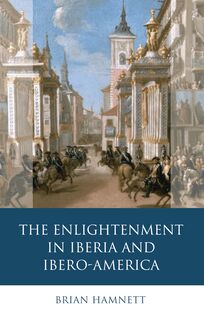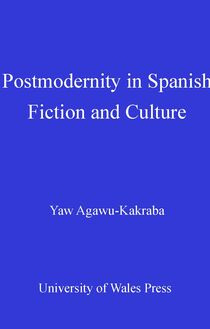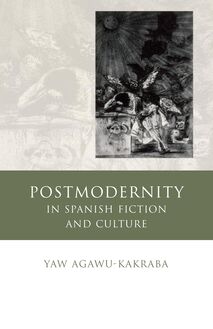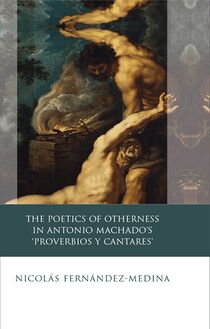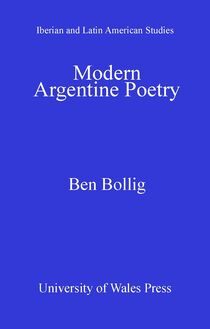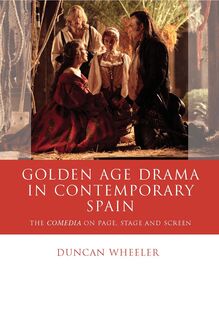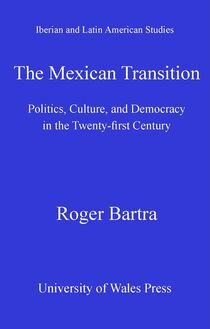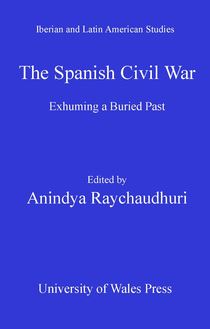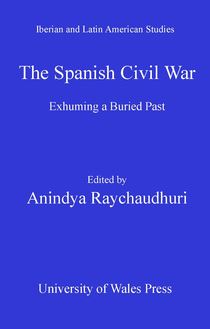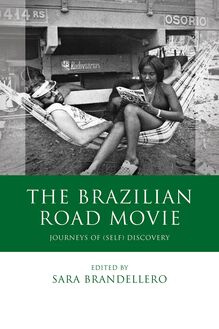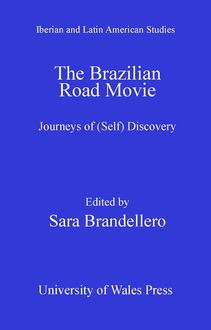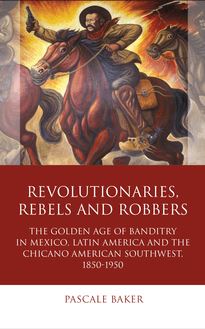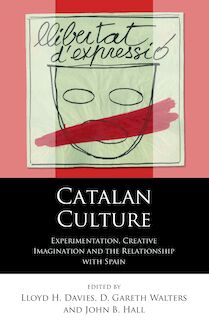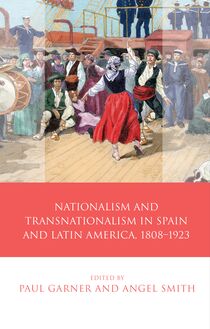-
 Univers
Univers
-
 Ebooks
Ebooks
-
 Livres audio
Livres audio
-
 Presse
Presse
-
 Podcasts
Podcasts
-
 BD
BD
-
 Documents
Documents
-
- Cours
- Révisions
- Ressources pédagogiques
- Sciences de l’éducation
- Manuels scolaires
- Langues
- Travaux de classe
- Annales de BEP
- Etudes supérieures
- Maternelle et primaire
- Fiches de lecture
- Orientation scolaire
- Méthodologie
- Corrigés de devoir
- Annales d’examens et concours
- Annales du bac
- Annales du brevet
- Rapports de stage
La lecture à portée de main
Vous pourrez modifier la taille du texte de cet ouvrage
Découvre YouScribe en t'inscrivant gratuitement
Je m'inscrisDécouvre YouScribe en t'inscrivant gratuitement
Je m'inscrisEn savoir plus
Vous pourrez modifier la taille du texte de cet ouvrage
En savoir plus

Description
OPEN ACCESS
To view Blood, Land and Power for free click on the following links:
https://www.uwp.co.uk/app/uploads/9781786836110.pdf
This monograph is also available to read on OAPEN: https://library.oapen.org/handle/20.500.12657/47859
The analysis of land management, lineage and family through the case study of early modern Spanish nobility from sixteenth to early nineteenth century is a major issue in recent historiography. It aims to shed light on how upper social classes arranged strategies to maintain their political and economic status. Rivalry and disputes between old factions and families were attached to the control and exercise of power. Blood, land management and honour were the main elements in these disputes. Honour, service to the Crown, participation in the conquest and ‘pure’ blood (Catholic affiliation) were the main features of Spanish nobility. This book analyses the origins of the entailed-estate (mayorazgo) from medieval times to early modern period, as the main element that enables us to understand the socio-economic behaviour of these families over generations. This longue durée chronology within the Braudelian methodology of the research aims to show how strategies and family networks changed over time, demonstrating a micro-history study of daily life.
ACKNOWLEDGMENTS
LIST OF FIGURES, GRAPHS AND TABLES
FOREWORD
INTRODUCTION
CHAPTER 1. LINEAGE GLORY AND HONOUR IN LATE MIDDLE AGES: CONQUEST AND CONSOLIDATION OF ECONOMIC POWER
CHAPTER 2. HONOUR AND PURITY OF BLOOD
CHAPTER 3. BUILDING A SOCIAL NETWORK THROUGH POLITICAL, SOCIAL, AND INSTITUTIONAL TIES
CHAPTER 4. FAMILY AND ENTAILED STATE (MAYORAZGO): FIRSTBORNS AS KEEPERS OF THE FAMILY’S ECONOMIC POWER
CONCLUSIONS
BIBLIOGRAPHY
Sujets
Informations
| Publié par | University of Wales Press |
| Date de parution | 15 avril 2021 |
| Nombre de lectures | 0 |
| EAN13 | 9781786837127 |
| Langue | English |
| Poids de l'ouvrage | 1 Mo |
Informations légales : prix de location à la page 0,1900€. Cette information est donnée uniquement à titre indicatif conformément à la législation en vigueur.
Extrait
IBERIAN AND LATIN AMERICAN STUDIES
Blood, Land and Power
Series Editors
Professor David George (Swansea University)
Professor Paul Garner (University of Leeds)
Editorial Board
Samuel Amago (University of Virginia)
Roger Bartra (Universidad Aut noma de M xico)
Paul Castro (University of Glasgow)
Richard Cleminson (University of Leeds)
Catherine Davies (University of London)
Luisa-Elena Delgado (University of Illinois)
Maria Delgado (Central School of Speech and Drama, London)
Will Fowler (University of St Andrews)
David Gies (University of Virginia)
Gareth Walters (Swansea University)
Duncan Wheeler (University of Leeds)
Other titles in the series
Fantastic Short Stories by Women Authors from
Spain and Latin America: A Critical Anthology
Patricia Grac a and Teresa L pez-Pellisa
Carmen Mart n Gaite: Poetics, Visual Elements and Space
Ester Bautista Botello
The Spanish Anarchists of Northern Australia:
Revolution in the Sugar Cane Fields
Robert Mason
Paulo Emilio Salles Gomes: On Brazil and Global Cinema
Maite Conde and Stephanie Dennison
The Darkening Nation: Race, Neoliberalism and Crisis in Argentina
Ignacio Aguil
Catalan Culture: Experimentation, creative imagination and the relationship with Spain
Lloyd Hughes Davies, J. B. Hall and D. Gareth Walters
Madness and Irrationality in Spanish and Latin American
Literature and Culture
Lloyd Hughes Davies
IBERIAN AND LATIN AMERICAN STUDIES
Blood, Land and Power
The Rise and Fall of the Spanish Nobility and Lineages in the Early Modern Period
MANUEL PEREZ-GARCIA
Manuel Perez-Garcia, 2021
All rights reserved. No part of this book may be reproduced in any material form (including photocopying or storing it in any medium by electronic means and whether or not transiently or incidentally to some other use of this publication) without the written permission of the copyright owner. Applications for the copyright owner s written permission to reproduce any part of this publication should be addressed to the University of Wales Press, University Registry, King Edward VII Avenue, Cardiff CF10 3NS.
www.uwp.co.uk
British Library CIP A catalogue record for this book is available from the British Library.
ISBN 978-1-78683-710-3 E-ISBN 978-1-78683-712-7
The right of Manuel Perez-Garcia to be identified as author of this work has been asserted in accordance with sections 77 and 79 of the Copyright, Designs and Patents Act 1988. Blood, Land and Power is available as an open access publication DOI 10.16922/bloodlandpower
This research has been sponsored and financially supported from the GECEM ( Global Encounters between China and Europe: Trade Networks, Consumption and Cultural Exchanges in Macau and Marseille, 1680-1840 ) Project hosted by the University Pablo de Olavide, UPO (Seville, Spain), www.gecem.eu . The GECEM Project is funded by the ERC (European Research Council)-Starting Grant, under the European Union s Horizon 2020 Research and Innovation Programme, ref. 679371. The Principal Investigator is Professor Manuel Perez-Garcia (Distinguished Researcher at UPO).
Cover image: Francisco Pradilla Ortiz, The Capitulation of Granada (1882), oil on canvas, coll. Senado de Espa a, Madrid; by permission, Heritage Image Partnership Ltd / Alamy Stock Photo.
Typeset by Geethik Technologies
The publisher has no responsibility for the persistence or accuracy of URLs for any external or third-party internet websites referred to in this book, and does not guarantee that any content on such websites is, or will remain, accurate or appropriate.
To my father Manuel P rez Garc a who has set an outstanding example of perseverance, dedication, love, and passion to his work in the medical profession. His altruistic and generous service to the care of the community deserves full recognition, being an example to follow for the education and direction of the family. Without your support and your example of commitment and enthusiasm to your work, I would never have been able to write this book.
The family is the stronghold to keep the values, ethics and unity of our society.
Contents
Series Editors Foreword
Acknowledgements
List of Figures, Graphs and Tables
Foreword by J. B. Owens
Introduction
1 Lineage, Glory and Honour in the Late Middle Ages: Conquest and Consolidation of Economic Power
2 Honour and Purity of Blood
3 Building a Social Network through Political, Social and Institutional ties
4 Family and Entailed Estate ( Mayorazgo ): First-Borns as Keepers of the Family s Economic Power
Conclusions
Bibliography
Notes
Appendix
Series Editors Foreword
Over recent decades the traditional languages and literatures model in Spanish departments in universities in the United Kingdom has been superseded by a contextual, interdisciplinary and area studies approach to the study of the culture, history, society and politics of the Hispanic and Lusophone worlds - categories that extend far beyond the confines of the Iberian Peninsula, not only in Latin America but also to Spanish-speaking and Lusophone Africa.
In response to these dynamic trends in research priorities and curriculum development, this series is designed to present both disciplinary and interdisciplinary research within the general field of Iberian and Latin American Studies, particularly studies that explore all aspects of Cultural Production (inter alia literature, film, music, dance, sport) in Spanish, Portuguese, Basque, Catalan, Galician and indigenous languages of Latin America. The series also aims to publish research in the History and Politics of the Hispanic and Lusophone worlds, at the level of both the region and the nation-state, as well as on Cultural Studies that explore the shifting terrains of gender, sexual, racial and postcolonial identities in those same regions.
Acknowledgements
This book is the result of the academic actions and activities of the GECEM ( Global Encounters between China and Europe: Trade Networks, Consumption and Cultural Exchanges in Macau and Marseille, 1680-1840, www.gecem.eu ) Project. The workshops and academic forums in which I have participated since GECEM started in June 2016, in Tokyo, Beijing, Boston, Shanghai, Oxford, Paris, Vancouver, Seville, Mexico City, Guadalajara, San Jos (Costa Rica) and Murcia have served to obtain feedback from outstanding scholars and improve upon the ideas and early drafts of this book.
I wish to acknowledge the financial support of the European Research Council (ERC)-Starting Grant, under the European Union s Horizon 2020 Research and Innovation Programme, at the Pablo de Olavide University (UPO) in Seville (Spain), which acts as European host for GECEM. The academic collaboration with my colleague and friend Professor Lucio de Sousa (Tokyo University of Foreign Studies) has helped and encouraged me to undertake my career as a historian in China and in the 2011 founding of the Global History Network in China (GHN) in Beijing, www.globalhistorynetwork.com .
We have jointly established a permanent academic forum of discussion and publications through GHN to promote knowledge and understanding of the still unknown East Asian world and culture, and the exchanges with Europe and the Western world. Expanding the GHN through organised academic meetings in China, Europe, and the Americas has helped us to invigorate the field of global history and early modern history of western and eastern regions. Obtaining my current European Research Council (ERC)-Starting Grant in the autumn of 2015 has made it possible to further this mission, which has crystallised in the publication of this book by the University of Wales Press.
I am grateful to academic institutions and partners of GECEM and GHN such as Shanghai Jiao Tong University, Tokyo University of Foreign Studies, the Beijing Center for Chinese Studies at the University of International Business and Economics (Beijing, China), the Macau Ricci Institute at the University of Saint Joseph (Macau), the Faculty of Asian and Middle Eastern Studies at the University of Cambridge, the Centre for Global History at the University of Oxford, the Center of Global History and European Studies at Pittsburgh University, the Centre of Global History at the University of Warwick, the Universidad Nacional Autonoma de Mexico (UNAM), the cole des Hautes tudes en Sciences Sociales (Paris, France), the European University Institute (Florence, Italy), the Universidad Autonoma de Madrid, and the Faculty of Economics and Business at the Universidad de Murcia.
I specially want to thank GECEM Project team members Bartolom Yun-Casalilla, Marisol Vidales Bernal, Omar Svriz, Manuel D az Ordo ez, Nadia Fern ndez de Pinedo Echeverria, Mar a Jes s Mil n Agudo, Roc o Moreno Cabanillas, Felix Mu oz, Jin Lei, Wang Li and Guimel Hern ndez. I am grateful to comments and suggestions made by Jack Owens, Jesus Cruz, Jean-Pierre Dedieu, Mafalda Soares da Cunha, Luis Jauregui, Richard von Glahn, Bartolom Yun-Casalilla, Anne McCants, Shigeru Akita, Gakusho Nakajima, Mihoko Oka, Carlos Marichal, Dennis Flynn, Patrick O Brien, Pat Manning, Joe P. McDermott, Leonard Blusse, Fran ois Gipouloux, Debin Ma, Leonor Diaz de Seabra and Antonio Ibarra. I would also like to thank the PAIDI group HUM-1000 Historia de la Globalizaci n: Violencia, Negociaci n e Interculturalidad at Area de Historia Moderna (UPO), of which I am a member. The Principal Investigator of the PAIDI group is Igor P rez Tostado, funded by Junta de Andaluc a (Seville, Spain). Igor P rez, Bethany Aram and Fernando Ramos deserve a special word of gratitude for their support and help. I also express my gratitude to the Project HAR2014-53797-P Globalizaci n Ib rica: redes entre Asia y Europa y los cambios en las pautas de consumo en Latinoam rica whose Principal Investigator is Bartolom Yun-Casalilla, funded by the Ministerio de Econom a y Competitividad (MINECO). I am also a research member of this project.
Spec
-
 Univers
Univers
-
 Ebooks
Ebooks
-
 Livres audio
Livres audio
-
 Presse
Presse
-
 Podcasts
Podcasts
-
 BD
BD
-
 Documents
Documents
-
Jeunesse
-
Littérature
-
Ressources professionnelles
-
Santé et bien-être
-
Savoirs
-
Education
-
Loisirs et hobbies
-
Art, musique et cinéma
-
Actualité et débat de société
-
Jeunesse
-
Littérature
-
Ressources professionnelles
-
Santé et bien-être
-
Savoirs
-
Education
-
Loisirs et hobbies
-
Art, musique et cinéma
-
Actualité et débat de société
-
Actualités
-
Lifestyle
-
Presse jeunesse
-
Presse professionnelle
-
Pratique
-
Presse sportive
-
Presse internationale
-
Culture & Médias
-
Action et Aventures
-
Science-fiction et Fantasy
-
Société
-
Jeunesse
-
Littérature
-
Ressources professionnelles
-
Santé et bien-être
-
Savoirs
-
Education
-
Loisirs et hobbies
-
Art, musique et cinéma
-
Actualité et débat de société
- Cours
- Révisions
- Ressources pédagogiques
- Sciences de l’éducation
- Manuels scolaires
- Langues
- Travaux de classe
- Annales de BEP
- Etudes supérieures
- Maternelle et primaire
- Fiches de lecture
- Orientation scolaire
- Méthodologie
- Corrigés de devoir
- Annales d’examens et concours
- Annales du bac
- Annales du brevet
- Rapports de stage
